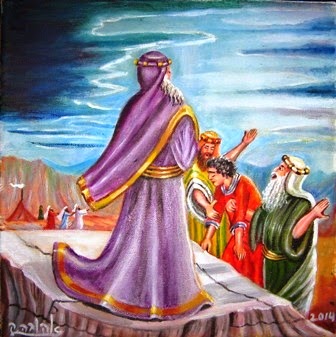Emor-The Prohibition of Blasphemy
Our Torah portion brings a story that is related to one of the essential Noahide commandments. The son of an Israelite woman, who was also the son of an Egyptian man, found himself in a conflict with an Israelite man within the camp. As a result, he got very angry and blasphemed the Divine Name. The Lord then gave Moses specific instructions: the one who had cursed was to be taken outside the camp. Finally, he was stoned to death. Moses warns that anyone who curses G-d will face the penalty of death. (Leviticus 24:10-17).
Blasphemy refers to the act of insulting, showing contempt, or lacking reverence towards judges in Noahide courts as well. Anger and arrogance can potentially lead to actions or words that might be considered blasphemous. For example, in a fit of anger, someone might utter words that are disrespectful to G-d. Arrogance might lead an individual to make claims or statements that could also be dishonoring. The Bible teaches us against behaviors like anger and slander, which could be associated with blasphemy. Guarding your speech is very crucial: Proverbs 13:3 advises: “Whoever guards his mouth preserves his life.”
The sin of blasphemy carries the possibility of capital punishment by speech alone, even without action, as it is considered a criminal act by uttering alone. Gentiles are commanded to fear and honor God.
The primary reason for the prohibition of blasphemy is the obligation to honor and fear God.
There are also some anti-religious ideologies, like atheism or communism, that express forms of blasphemy. They might criticize or mock belief in the creator of all. Some philosophies are considered as such as well.
The completeness of the Holy Name of G-d will appear at redemption when Amalek will be eradicated and the divine presence will be fully revealed.
*This is from a series of articles by Rabbi Bernstein Moshe.

